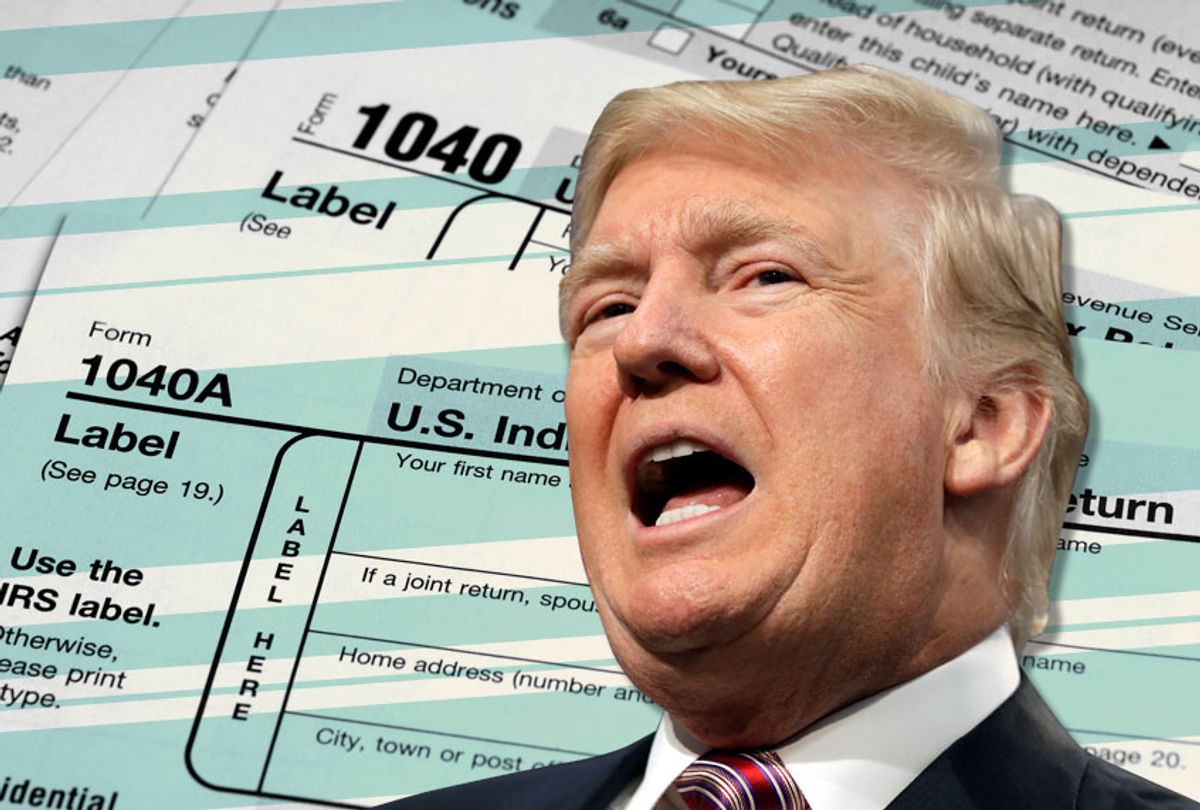House Democrats released historical documents Thursday showing their attempt to obtain President Donald Trump's tax returns has precedent.
According to a statement from committee chairman Richard Neal, D-Mass., the House Ways and Means Committee voted to publish documents from the early 1970s showing how when members of the Joint Committee on Taxation used their authority to request President Richard Nixon's tax information, the Internal Revenue Service (IRS) immediately complied with the request.
The Ways and Means panel has cited the same tax disclosure law — Section 6103 of the federal tax code — in an effort to obtain Trump's tax returns. The law says the IRS "shall furnish" the returns of any taxpayer to the chairmen of the tax-writing House Ways and Means Committee, the Senate Finance Committee and the Joint Committee on Taxation for legitimate legislative purpose.
Nixon had voluntarily disclosed his returns from 1969-1972. The Joint Committee on Taxation sought — and received — additional tax information from the IRS from 1963-1968.
Neal initially made the request for Trump's personal and business tax returns, as well as documents related to any audits, on April 3. After a series of letters between the panel and the administration, Treasury Secretary Steve Mnuchin formally rejected the request at the beginning of May, arguing that it represented an unprecedented abuse of power. Neal issued subpoenas to the IRS and Treasury Department on May 10.
Mnuchin, who oversees the IRS, has fought to protect the president's financial information from public disclosure, arguing the request to turn over his returns would create a dangerous precedent.
"History demonstrates that private tax return information is susceptible to abuse for partisan purposes ― regardless of which party is in power," Mnuchin said in an April 23 letter. "Unless carefully restrained by law, this risk threatens the privacy of all taxpayers."
Democrats, meanwhile, have argued the power for lawmakers to seek the returns is written explicitly in a 1924 law. They have also argued they need to see the president's returns to ensure the IRS was conducting audits properly.
Mnuchin argued at a Senate Appropriations subcommittee hearing in May the tax scuffle was "a very important issue that has a precedent way beyond any one president and Congress."
"There is a difference in interpretation between Congress and the Department of Justice around this law that not only impacts this president and this Congress but has a very big impact on every single taxpayer in weaponizing the IRS," Mnuchin said at the time. "And this is why there are three branches of government."
He also said Congress did not need to see the president's tax returns to ensure the IRS was fairly enforcing the law.
"Congress has a legitimate interest to make sure that the IRS is performing the function properly as it relates to any taxpayer," Mnuchin said. "This is a very important issue that has a precedent way beyond any one president."
Democrats have been on a hunt for Trump's tax returns since he bucked decades of tradition when he refused to release them during the 2016 election cycle.
Although not required by law, every major party presidential nominee since the 1970s has chosen to publicly release his or her tax returns except for Gerald Ford, who only released a summary. Financial disclosures can help paint a fuller picture of a candidate's business positions and interests by providing information about financial dealings, such as investments, donations, business relationships, assets and possible conflicts of interests.
Trump has made clear he does not want to turn over his tax returns, claiming he cannot disclose them as a result of being audited by the IRS. However, an audit does not prevent a taxpayer from releasing his or her own tax documents. The administration has indicated it plans to fight congressional requests for information about the president's finances.



Shares